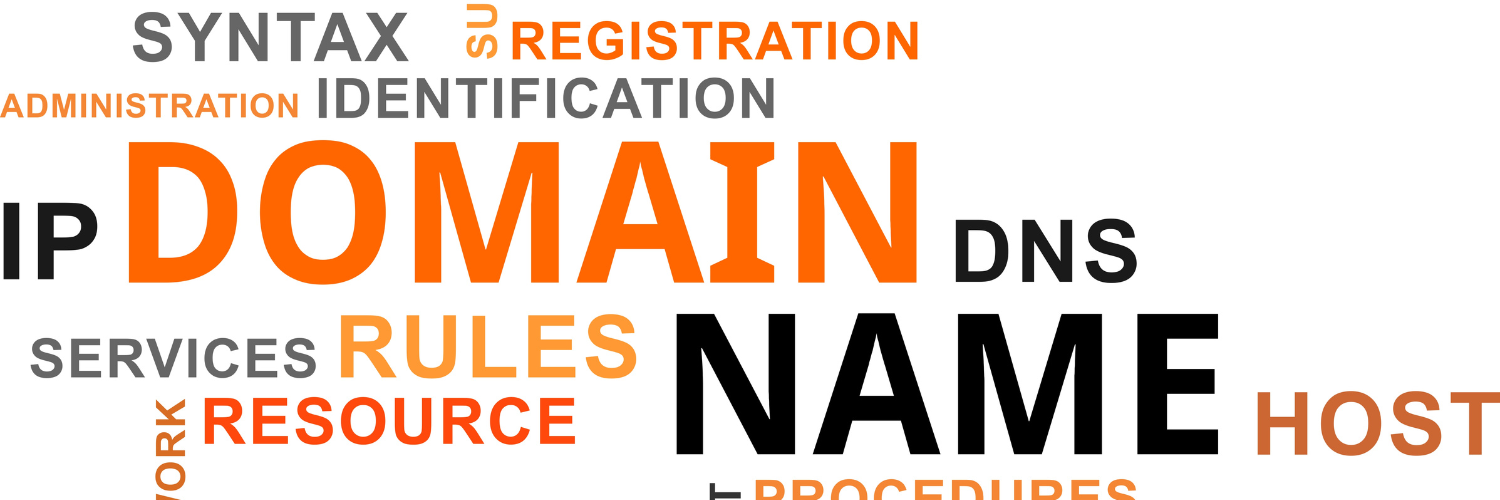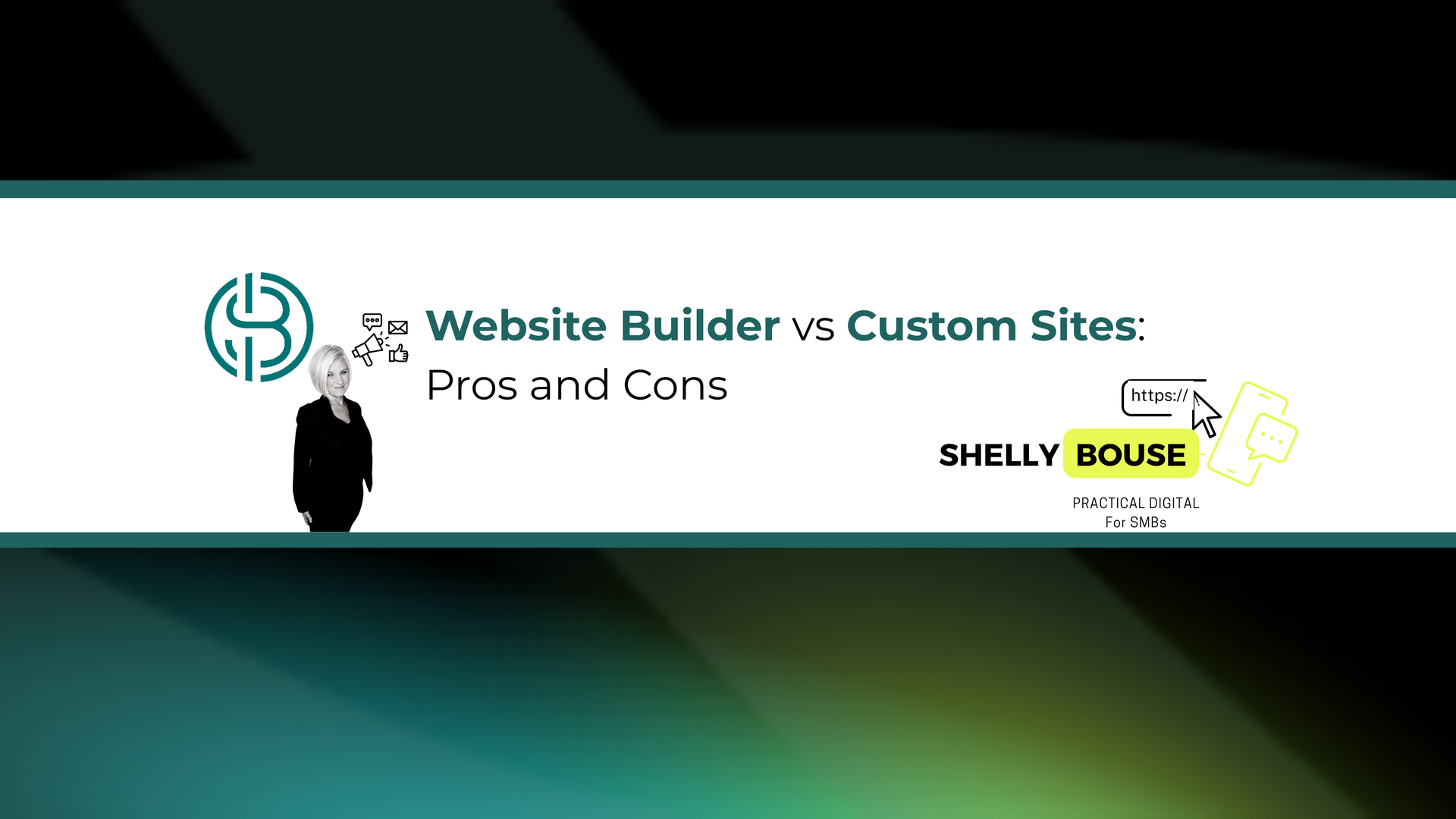Essential Custom Domain Tips for Business Websites
Shelly Bouse • April 14, 2025
Custom Domain Essentials for Business Websites


Key Highlights
- A custom domain is essential for establishing a professional online presence and building brand identity .
- Custom domains enhance credibility and trustworthiness, making it easier for customers to find and remember your website.
- Choosing the right custom domain involves considering factors such as domain registrar, domain extension, and brand identity.
- The process of acquiring a custom domain includes steps like domain registration and selecting the best domain registrar for your needs.
- Setting up a custom domain involves configuring DNS settings and connecting it to your website hosting provider.
- Security and privacy are important considerations for custom domains, including implementing SSL for secure connections and protecting personal information.
- Maximizing the potential of your custom domain involves implementing SEO best practices and exploring creative ways to use multiple domains for your business.
In this blog, we will delve into the essentials of custom domains for business websites. We will explore the importance of a custom domain, how it enhances brand identity and credibility, and provide practical tips for choosing the right custom domain. Additionally, we will guide you through the process of acquiring and setting up a custom domain, ensuring security and privacy, and maximizing the potential of your domain for SEO and brand recognition.
Whether you're a small start-up or an established business, understanding the fundamentals of custom domains is vital to creating a strong online presence and connecting with your target audience. So let's dive in and discover all you need to know about custom domains for business websites.
Understanding Custom Domains
Before we delve into the specifics, let's start with the basics. A custom domain is a unique web address that is branded to your business. It serves as a personalized online identity, making it easier for customers to find and remember your website. Instead of relying on generic domain names provided by website builders, a custom domain reflects your brand name and creates a professional online presence. It's like having your own virtual address in the vast digital landscape.
With a custom domain, you can establish a strong online presence and enhance your brand's credibility.
A key element of a custom domain is the domain extension, also known as the top-level domain (TLD). Examples of popular domain extensions include .com, .org, and .net. The choice of domain extension can impact your brand's identity and online visibility. So, let's explore the importance of a custom domain for your business.
The Importance of a Custom Domain for Your Business
Having a custom domain is essential for establishing your brand identity in the online world. When customers visit your website, they expect your domain name to match or closely resemble your business name. A custom domain reinforces your brand and creates a sense of trust and professionalism.
Furthermore, a custom domain enhances your online presence by making it easier for customers to find you. Generic domain names provided by website builders can be long and difficult to remember. With a custom domain, your web address becomes concise, unique, and easy to share. This improves your visibility in search engine results and increases the chances of attracting potential customers.
In summary, a custom domain is not just a web address; it's a representation of your brand identity. It helps establish your business's online presence, enhances credibility, and ensures that customers can easily find and remember your website.
How Custom Domains Enhance Brand Identity and Credibility
A custom domain plays a crucial role in enhancing your brand identity and credibility. Here are some key reasons why custom domains are essential for your business:
- Brand name consistency: A custom domain allows you to align your web address with your brand name, creating a consistent and cohesive online presence.
- Improved credibility: A custom domain instills trust in your customers, showcasing that you are a legitimate and professional business.
- Domain extension relevance: Choosing the right domain extension is important as it can reflect the nature of your business and target audience. For example, .com is commonly associated with commercial businesses, while .org is often used for non-profit organizations.
- Primary domain ownership: With a custom domain, you have complete ownership and control over your web address, ensuring that it remains exclusively tied to your business.
By leveraging a custom domain, you can strengthen your brand identity, establish credibility, and differentiate yourself from competitors with clunkier domain names.
Choosing the Right Custom Domain
Now that we understand the importance of a custom domain, let's dive into the process of choosing the right one for your business. Selecting the perfect custom domain involves considering factors such as the domain registrar, domain extension, and your company name.
The domain registrar is the platform or service through which you purchase and manage your custom domain. Popular domain registrars include GoDaddy , Namecheap , and BlueHost. It's important to choose a reliable registrar that offers competitive pricing, secure management options, and excellent customer support.
When it comes to the domain extension, consider whether a .com, .org, or other extensions best represent your business and target audience. Additionally, ensure that your chosen custom domain aligns with your company name and brand identity.
Factors to Consider When Selecting Your Custom Domain
Choosing the perfect custom domain requires careful consideration of several factors. Here are some key factors to keep in mind:
- Domain registrar: Research and compare different domain registrars to find one that offers competitive pricing, reliable service, and user-friendly management tools. Consider factors such as customer support and additional features they provide.
- Domain extension: Consider the nature of your business and target audience when selecting a domain extension. Popular options like .com, .org, and .net are often preferred for their familiarity and broad appeal.
- Brand identity: Your custom domain should align with your brand name and identity. It should be easy to remember, pronounce, and spell, and reflect the essence of your business.
- Domain availability: Conduct a thorough search to ensure that your desired custom domain is available. This may involve trying different variations or domain extensions to find a unique and memorable web address.
By considering these factors, you can select a custom domain that effectively represents your business and strengthens your brand identity.
Tips for Finding the Perfect Domain Name
Finding the perfect domain name can be a challenging task, but with a strategic approach, you can find a web address that resonates with your business and target audience. Here are some tips to help you in your search:
- Use a reputable domain registrar to ensure a smooth registration process and reliable domain management.
- Consider a new domain extension like .io or .app to find unique and available domain names.
- Brainstorm creative variations or combinations of words related to your business or industry.
- Prioritize a personalized domain name that aligns with your brand identity and is easy to remember.
Remember to conduct thorough research, check for domain availability, and consider the long-term impact of your chosen domain name. By following these tips, you can find the perfect custom domain that sets your business apart.
Need help with custom domain ideas? User our FREE Custom Domain Name Generator
The Process of Acquiring a Custom Domain
Now that you have an understanding of what to consider when selecting a custom domain, let's explore the process of acquiring one. Acquiring a custom domain involves several steps, from domain registration to providing payment information.
Domain registration is the process of officially claiming and securing your chosen custom domain. This is typically done through a domain registrar, where you will provide the necessary information, select the desired domain extension, and complete the payment process.
During the registration process, you may also have the option to add domain privacy and protection, which shields your personal information from appearing in public databases. Once the registration is complete, you will become the official owner of the custom domain.
Step-by-Step Guide to Registering Your Custom Domain
Registering a custom domain involves a series of steps that can vary slightly depending on the domain registrar you choose. Here is a general step-by-step guide to help you through the process:
- Choose a reputable domain registrar : Research and select a domain registrar that meets your needs in terms of pricing, features, and customer support.
- Search for the availability of your desired custom domain : Use the registrar's search bar to check if your desired domain name is available. If not, try different variations or domain extensions.
- Add the domain to your cart : Once you find an available domain, add it to your cart for purchase
- Review and select additional services : At this stage, you may have the option to add domain privacy and protection, as well as other services offered by the registrar.
- Provide payment information : Enter your payment details to complete the registration process. Make sure to review the cost and renewal fees associated with your chosen domain.
- Verify and set up your domain : Follow the registrar's instructions to verify your ownership of the domain and set up any necessary DNS settings.
By following these steps, you can successfully register your custom domain and take the first step towards establishing your online presence.
Choosing the Best Domain Registrar for Your Needs
Choosing the best domain registrar for your needs is crucial for a smooth and secure domain registration process. Here are some factors to consider when evaluating different domain registrars:
- Reputation and reliability : Look for a well-established registrar with a good track record and positive customer reviews.
- Pricing and features : Compare the pricing plans and features offered by different registrars to ensure they align with your budget and requirements.
- Customer support : Check if the registrar provides responsive and helpful customer support, as you may need assistance during the registration process.
- Integration with web hosting : If you plan to host your website with a specific web hosting provider, ensure that the domain registrar seamlessly integrates with the hosting platform.
- Best practices : Consider industry best practices and recommendations when selecting a domain registrar to ensure compliance and security.
By carefully evaluating these factors, you can choose the best domain registrar that meets your needs and provides a seamless domain registration experience.
Setting Up Your Custom Domain
Setting up your custom domain involves configuring the necessary DNS settings and connecting it to your web hosting provider. Additionally, you may explore advanced options like serverless functions to enhance your website's functionality.
DNS (Domain Name System) is responsible for converting your domain name into the corresponding IP address, allowing users to access your website. Configuring the DNS involves adding DNS records that specify how your domain connects to your website hosting server. This step is crucial for ensuring that your custom domain points to the correct web content.
Depending on your web hosting provider, the process of connecting your custom domain to your website may involve updating DNS settings, adding CNAME or A records, or utilizing specific domain management tools provided by the hosting platform. Serverless functions, on the other hand, allow you to build dynamic web applications without the need for server management.
Configuring DNS for Your Custom Domain
Configuring DNS for your custom domain is essential for directing web traffic to your website. Here's a step-by-step guide to assist you in configuring DNS settings:
- Access your domain management dashboard: Log in to your domain registrar's website and navigate to the domain management section.
- Locate DNS settings : Look for the DNS settings or DNS management tab within your domain management interface.
- Add DNS records : Depending on your hosting provider, you may need to add CNAME or A records to map your domain to the corresponding IP address of your website server.
- Update nameservers : If your hosting provider provides nameserver information, update the nameservers with the provided values.
- Save and verify : Save the changes to your DNS settings and allow time for the changes to propagate across the internet. You can use online DNS lookup tools to verify if your domain is correctly pointing to your website.
By following these steps and carefully configuring your DNS settings, you can ensure that your custom domain correctly directs users to your website.
Connecting Your Custom Domain to Your Website
- Access your website builder or hosting platform : Log in to your website builder or hosting platform account.
- Navigate to domain settings: Look for the domain settings or domain management section within your account.
- Choose the custom domain option : Select the option to connect a custom domain or add an existing domain.
- Enter your custom domain : Enter your custom domain name in the provided field.
- Verify domain ownership : Depending on the platform, you may be required to verify your domain ownership by adding a DNS record or following specific verification steps.
- Save and test : Save your changes and allow time for the DNS records to propagate. Test your custom domain to ensure it correctly connects to your website.
By following these steps and consulting the documentation provided by your website builder or hosting platform, you can successfully connect your custom domain to your website and establish a seamless online presence.
Security and Privacy for Your Custom Domain
Ensuring security and privacy for your custom domain is crucial for protecting your website and customer information. Implementing SSL (Secure Sockets Layer) encryption, privacy protection, and other security features can safeguard your online presence.
SSL certificates encrypt the data transmitted between your website and visitors, ensuring secure communication and protecting sensitive information. Privacy protection services, offered by domain registrars, shield your personal information from being publicly available in WHOIS databases.
Additionally, consider implementing other security features such as firewalls, malware scanning, and regular security audits to protect your website from potential threats. By prioritizing security and privacy, you can establish trust with your customers and safeguard your business's online presence.
Implementing SSL to Secure Your Custom Domain
Implementing SSL (Secure Sockets Layer) encryption is crucial for securing your custom domain and ensuring the privacy and integrity of data transmitted between your website and visitors.
To implement SSL, you can obtain an SSL certificate from a trusted certificate authority (CA) or through your domain registrar. The SSL certificate encrypts the data transmitted between your website and visitors, protecting it from unauthorized access.
Many domain registrars offer SSL certificates as part of their services. You can select the appropriate SSL certificate type based on the level of security and validation required for your website. Once obtained, you will need to configure your web server to enable SSL and redirect all traffic to the secure HTTPS version of your website.
By implementing SSL, you can provide a secure browsing experience for your users and enhance the overall security of your custom domain.
Privacy Protection for Domain Registration
Privacy protection for domain registration is essential for safeguarding your personal information from being publicly available. When you register a domain, certain personal details like your name, address, phone number, and email address are required for WHOIS databases.
Privacy protection services, offered by domain registrars, help protect this personal information by replacing it with the registrar's contact information. This ensures that your personal details remain private and shielded from potential misuse or spam.
Additionally, it's important to have a clear cookie policy in place on your website. This informs visitors about the use of cookies and how their data is being collected and stored. By prioritizing privacy protection and implementing a comprehensive cookie policy, you can establish trust and compliance with privacy regulations.
Maximizing the Potential of Your Custom Domain
Acquiring a custom domain is just the first step towards building a successful online presence for your business. To fully leverage the potential of your custom domain, it's important to focus on search engine optimization (SEO) and explore creative ways to enhance your online visibility.
Implementing SEO best practices, such as optimizing your website content , using relevant keywords, and building quality backlinks, can help improve your website's search engine rankings and drive organic traffic.
Additionally, consider utilizing multiple domains for your business. By leveraging subdomains or root domains, you can create targeted landing pages or microsites that cater to specific products or services. This allows for better brand segmentation and helps drive targeted traffic to your website.
SEO Best Practices for Custom Domains
To maximize the SEO potential of your custom domain, it's important to implement the following best practices:
- Optimize your website content: Create high-quality, relevant content that incorporates targeted keywords and provides value to your audience.
- Focus on on-page SEO : Make sure your website's meta tags, headings, and URLs are optimized for search engines.
- Build quality backlinks : Earn backlinks from reputable websites to improve your website's authority and search engine rankings.
- Consider the domain extension : While domain extensions like .com are commonly associated with credibility, newer domain extensions can also be effective if they align with your brand and target audience.
By following these SEO best practices, you can enhance your website's visibility in search engine results and attract more organic traffic.
Creative Ways to Use Multiple Domains for Your Business
Using multiple domains can provide various opportunities to strengthen your online presence and cater to different aspects of your business. Here are some creative ways to leverage multiple domains:
- Naked domain : Register a naked domain (without the www prefix) to create a simple and memorable web address for your main website.
- Subdomains : Utilize subdomains to create targeted landing pages or microsites that focus on specific products, services, or locations.
- Root domains : Establish separate websites or blogs on root domains to cater to different business divisions or niches.
By strategically utilizing multiple domains, you can enhance brand segmentation, improve user experience, and drive targeted traffic to specific areas of your business.


Throughout this evolution, custom domains have transformed from simple web addresses to powerful branding tools and digital assets. Today, a well-chosen custom domain is not just a technical necessity but a crucial part of a business's online strategy and identity.
While custom domains offer numerous benefits, there may be some challenges along the way. Understanding and addressing these challenges is crucial to maintaining a smooth and successful online presence.
Some common challenges include troubleshooting domain configuration issues and ensuring timely domain renewal to avoid losing your domain name. By following best practices and seeking timely support from your domain registrar or hosting provider, you can overcome these challenges and ensure the seamless operation of your custom domain.
Domain configuration issues can sometimes arise when setting up or managing your custom domain. Here are some common issues and their troubleshooting solutions:
If you encounter any domain configuration issues, consult the documentation provided by your domain registrar or seek support from their customer service team to resolve the issue promptly.
Renewing your custom domain in a timely manner is crucial to avoid losing your domain name. Here are some tips to ensure a smooth domain renewal process:
By following these tips and staying proactive about domain renewal, you can maintain ownership of your custom domain and avoid any disruptions to your online presence.
Investing in a custom domain is crucial for enhancing your business's online presence and credibility. A well-chosen custom domain not only boosts brand identity but also improves
SEO performance
and user trust. By following best practices in domain selection, security implementation, and maximizing domain potential, you can set your business apart in the competitive online landscape. Remember, securing your custom domain with SSL and prioritizing privacy protection are essential steps in safeguarding your digital assets. Stay proactive in managing your domain to avoid common pitfalls and ensure uninterrupted online visibility.
Embrace the power of a custom domain to propel your business towards digital success.
Once you have registered and purchased a custom domain, it is generally not possible to change it.
The domain registration process is binding, and changing the domain would require purchasing a new one. Consider carefully before finalizing your custom domain, ensuring it aligns with your company name and brand identity.
The time it takes to activate a custom domain varies depending on multiple factors such as the domain registrar and DNS propagation. Typically, it can take anywhere from a few hours to 48 hours for the changes to take effect and the domain to become active.
If your desired domain name is already taken, consider exploring alternative options. You can try different variations, such as adding a keyword or altering the domain extension. Additionally, use the search bar of your chosen domain registrar to find available alternatives that align with your business and brand.
While the cost of acquiring and registering a custom domain is generally straightforward, it's important to be aware of any additional fees. Some domain registrars may charge renewal fees, privacy protection fees, or fees for additional services. Review the pricing and terms of your chosen domain registrar to ensure there are no hidden costs associated with owning and maintaining your custom domain.
Common Challenges and Solutions
While custom domains offer numerous benefits, there may be some challenges along the way. Understanding and addressing these challenges is crucial to maintaining a smooth and successful online presence.
Some common challenges include troubleshooting domain configuration issues and ensuring timely domain renewal to avoid losing your domain name. By following best practices and seeking timely support from your domain registrar or hosting provider, you can overcome these challenges and ensure the seamless operation of your custom domain.
Troubleshooting Common Domain Configuration Issues
Domain configuration issues can sometimes arise when setting up or managing your custom domain. Here are some common issues and their troubleshooting solutions:
- DNS propagation delays: DNS changes may take time to propagate across the internet. Be patient and allow 24-48 hours for the changes to take effect.
- Incorrect DNS settings : Check your DNS records to ensure they are correctly configured to point to your website's IP address.
- Domain not resolving : If your domain is not resolving to your website, verify that the correct nameservers or DNS settings are in place.
- Email delivery issues : If you are experiencing problems with email delivery, ensure that your DNS records include the necessary MX (Mail Exchanger) records.
If you encounter any domain configuration issues, consult the documentation provided by your domain registrar or seek support from their customer service team to resolve the issue promptly.
Renewing Your Domain: Tips to Avoid Losing Your Domain Name
Renewing your custom domain in a timely manner is crucial to avoid losing your domain name. Here are some tips to ensure a smooth domain renewal process:
- Set up automatic renewal : Enable automatic renewal with your domain registrar to ensure that your domain is renewed without interruption.
- Monitor renewal notifications : Keep an eye on renewal notifications sent by your domain registrar to avoid missing renewal deadlines.
- Update payment information : Maintain up-to-date payment information with your domain registrar to avoid any issues with the renewal process.
- Register for multiple years : Consider registering your domain for multiple years to avoid the risk of losing it due to forgetfulness or unforeseen circumstances.
By following these tips and staying proactive about domain renewal, you can maintain ownership of your custom domain and avoid any disruptions to your online presence.
Embrace the power of a custom domain to propel your business towards digital success.
Frequently Asked Questions
Can I Change My Custom Domain After Purchasing?
Once you have registered and purchased a custom domain, it is generally not possible to change it.
The domain registration process is binding, and changing the domain would require purchasing a new one. Consider carefully before finalizing your custom domain, ensuring it aligns with your company name and brand identity.
How Long Does It Take to Activate My Custom Domain?
The time it takes to activate a custom domain varies depending on multiple factors such as the domain registrar and DNS propagation. Typically, it can take anywhere from a few hours to 48 hours for the changes to take effect and the domain to become active.
What Should I Do If My Desired Domain Name Is Taken?
If your desired domain name is already taken, consider exploring alternative options. You can try different variations, such as adding a keyword or altering the domain extension. Additionally, use the search bar of your chosen domain registrar to find available alternatives that align with your business and brand.
Are There Any Hidden Costs Involved in Owning a Custom Domain?
While the cost of acquiring and registering a custom domain is generally straightforward, it's important to be aware of any additional fees. Some domain registrars may charge renewal fees, privacy protection fees, or fees for additional services. Review the pricing and terms of your chosen domain registrar to ensure there are no hidden costs associated with owning and maintaining your custom domain.











